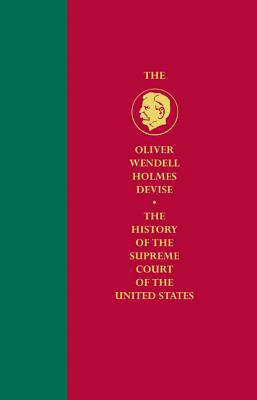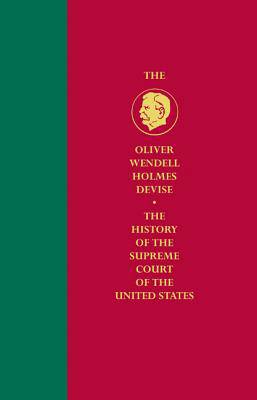
Door een staking bij bpost kan je online bestelling op dit moment iets langer onderweg zijn dan voorzien. Dringend iets nodig? Onze winkels ontvangen jou met open armen!
- Afhalen na 1 uur in een winkel met voorraad
- Gratis thuislevering in België vanaf € 30
- Ruim aanbod met 7 miljoen producten
Door een staking bij bpost kan je online bestelling op dit moment iets langer onderweg zijn dan voorzien. Dringend iets nodig? Onze winkels ontvangen jou met open armen!
- Afhalen na 1 uur in een winkel met voorraad
- Gratis thuislevering in België vanaf € 30
- Ruim aanbod met 7 miljoen producten
Zoeken
€ 341,95
+ 683 punten
Omschrijving
Foundations of Power: John Marshall, 1801-1815 is the second volume of the Oliver Wendell Holmes Devise History of the Supreme Court of the United Sates. The volume covers the beginnings of the Supreme Court under Chief Justice John Marshall and surveys the first fourteen years of John Marshall's tenure. The authors describe the judicial business transacted by the chief justice and the ten Associate Justices with whom he served during those years. They argue that John Marshall's great accomplishment as Chief Justice was to establish the rule of law as the basis of the Supreme Court's jurisprudence. The book chronicles how, by becoming "a bulwark of an identifiable rule of law as distinct from the accommodations of politics," the relatively feeble institution of the 1790s moved toward the authoritative Marshall Court of 1819.
Specificaties
Betrokkenen
- Auteur(s):
- Uitgeverij:
Inhoud
- Aantal bladzijden:
- 704
- Taal:
- Engels
- Reeks:
Eigenschappen
- Productcode (EAN):
- 9780521519847
- Verschijningsdatum:
- 23/11/2009
- Uitvoering:
- Hardcover
- Formaat:
- Genaaid
- Afmetingen:
- 165 mm x 236 mm
- Gewicht:
- 1133 g

Alleen bij Standaard Boekhandel
+ 683 punten op je klantenkaart van Standaard Boekhandel
Beoordelingen
We publiceren alleen reviews die voldoen aan de voorwaarden voor reviews. Bekijk onze voorwaarden voor reviews.











